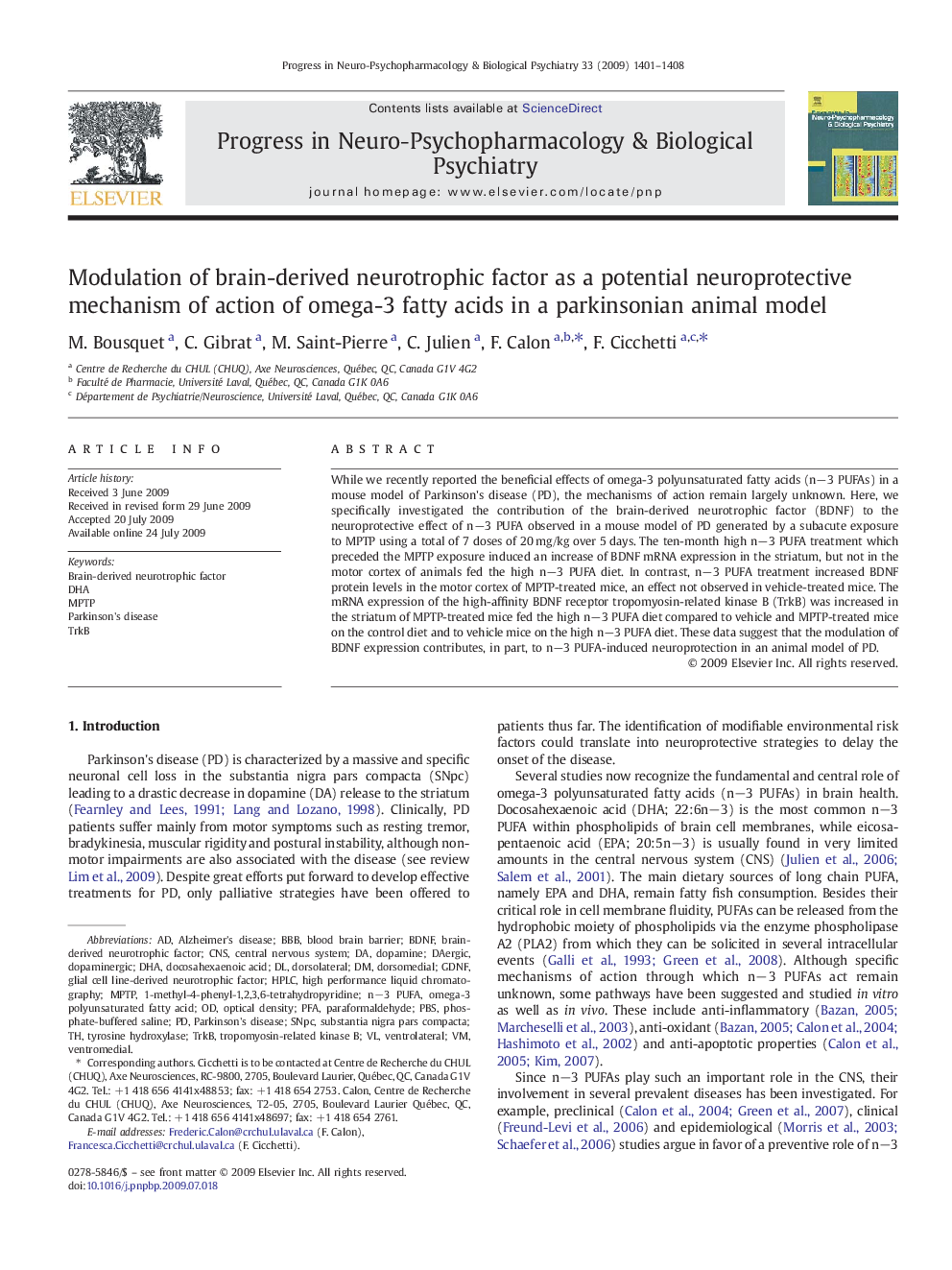| Article ID | Journal | Published Year | Pages | File Type |
|---|---|---|---|---|
| 2565755 | Progress in Neuro-Psychopharmacology and Biological Psychiatry | 2009 | 8 Pages |
While we recently reported the beneficial effects of omega-3 polyunsaturated fatty acids (n−3 PUFAs) in a mouse model of Parkinson's disease (PD), the mechanisms of action remain largely unknown. Here, we specifically investigated the contribution of the brain-derived neurotrophic factor (BDNF) to the neuroprotective effect of n−3 PUFA observed in a mouse model of PD generated by a subacute exposure to MPTP using a total of 7 doses of 20 mg/kg over 5 days. The ten-month high n−3 PUFA treatment which preceded the MPTP exposure induced an increase of BDNF mRNA expression in the striatum, but not in the motor cortex of animals fed the high n−3 PUFA diet. In contrast, n−3 PUFA treatment increased BDNF protein levels in the motor cortex of MPTP-treated mice, an effect not observed in vehicle-treated mice. The mRNA expression of the high-affinity BDNF receptor tropomyosin-related kinase B (TrkB) was increased in the striatum of MPTP-treated mice fed the high n−3 PUFA diet compared to vehicle and MPTP-treated mice on the control diet and to vehicle mice on the high n−3 PUFA diet. These data suggest that the modulation of BDNF expression contributes, in part, to n−3 PUFA-induced neuroprotection in an animal model of PD.
